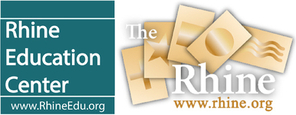Syllabus: The Wandering Mind: Out-of-Body and Near-Death Experiences
Instructors: Nancy L. Zingrone, PhD & Carlos S. Alvarado, PhD
About the course:
In this course students will be given an in-depth look at the history, features, research, and implication of two related experiences, the out-of-body experience (OBE) and the near-death experience (NDE). This course will examine the phenomena from the perspective of the experiencers, from the point of view of researchers, and from the point of view of such theorists as Dr. Susan Blackmore, Dr. Olaf Blanke, Dr. Harvey Irwin, Dr. John Palmer, Dr. Bruce Greyson, Dr. Pim van Lommel, and many more.
Resources will include specific case studies, website and video references, and readings from the scientific and popular literature. This course is designed for the serious student, but the information will be accessible to anyone with an interest in the phenomena. Besides providing an interesting discussion of OBEs and NDEs, this course will also provide a good grounding for those who wish to contribute to the scientific side of parapsychology.
Learning Outcomes:
Upon completion of the course students will be able to:
- Discuss the definitions, features and after-effects of both OBEs and NDEs.
- Identify the various methodological approaches to the study of OBEs and NDEs, as well as describe their strengths and weaknesses.
- Discuss experiences, case collections and experiments in terms of their parapsychological, psychological and physiological features.
- Describe and compare retrospective and prospective research methodologies in NDE research.
- Discuss why some students of the subject consider OBEs and NDEs important to the issue of survival of death.
Weekly Topics
Week 1 :
Introduction to Out-of-Body and Near-Death Experience Research
Week 2 :
The Body Double: OBE Apparitions, Dopplegangers and Bilocation
Week 3 :
Seeing and Being Seen: Veridical OBEs and NDEs
Week 4 :
Features of the OBE in Case Collections and Surveys
Week 5 :
Demographic and Psychological Aspects of OBEs in Surveys
Week 6 :
Features of NDEs in Case Collections and Surveys
Week 7 :
OBEs in the Laboratory: From Scientific Parapsychology to Cognitive Psychology
Week 8 :
The Implications of the OBE and NDE for Survival Research
Readings
Required readings will be provided in the REC classroom. Students may read ahead.
Suggested readings (articles, books, and blogs), YouTube videos, experiencer websites and links to other fascinating materials will also be provided for those who are interested in delving more deeply into some aspect of OBEs and NDEs on their own.
Grading
Students will receive a letter grade for this course based on the Academic Policies of the Rhine Education Center. Students may also choose to Audit this course (take the course without being assessed), but all students are encouraged to participate in weekly discussions to gain the full benefit of the class. Students who choose to audit the course must notify the Rhine Education Center of their intentions before the first class, and this decision cannot be changed once the class has begun.
Assessments
Discussion Forums, Assessment #1 through #8
Each week will include a discussion forum. Students will be expected to complete one post of their own responding to the week’s question, and respond to at least one discussion post authored by another student. Students will receive points for responding to the discussion question in full, and for their reply to another student’s post. Extra points will be awarded for a student’s initial post if, after answering the discussion question, the student goes beyond it to raise additional issues or provide additional information on the topic. Extra points will also be awarded for additional responses to other students’ discussion posts beyond the single post that is required. Points for week’s discussion will be converted to a number scale from 1 to 5, with 1 being the least amount of engagement completed in comparison to the rest of the class, and 5 being the most amount of engagement. If you write well, that’s wonderful! If you’re not the best writer in the world, or English is difficult for you, don’t worry. What will count the most will be your thoughts and your opinions. For some discussion topics, students may also have the option to upload an audio or a video discussion post or response.
Tests, Assessment #9 and #10
During Week #3 and Week #6, students will complete a 15-item multiple-choice quiz, with Week #3 covering the lectures and materials of Weeks #1 through #3, and with Week #6 covering the lectures and materials of Weeks #4 through #6. Correct answers will be awarded one point.
Presentation-Project, Assessment #11
At the end of Week #8 students will be expected to upload a 5 to 15 minute presentation or a 5 to 10 page term paper on some topic of the student’s choosing that is related to the course content. Presentations may be a short film with or without narration, a short audio clip, or a PowerPoint presentation. The range of points available for this assessment will be from 1 to 30, with 1 being altogether too brief and uninformative, to 30 being well-argued, well-made, and insightful, showing mastery of the course material. Tutorials on how to do this will be included in the classroom resources.
Assessments will contribute to the overall grade in the following proportions:
Grading Breakdown:
Discussion Post Assessments: 40% of the grade
Tests: 30% of the grade
Presentation-Project: 30% of the grade
Students will receive a letter grade for their overall efforts. Successful completion of this course with a passing letter grade will provide credit towards a Certificate program that will be offered in the future by the Rhine Education Center.

